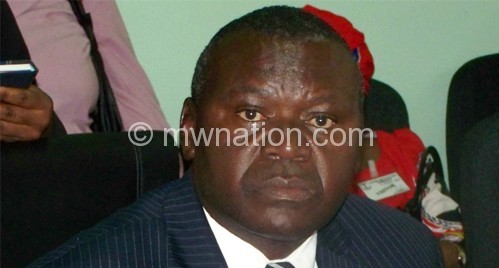MPs, analysts differ on Parliament’s performance

Political parties and analysts have given different assessments of whether the 2009-2014 Parliament has been responsive to the needs of Malawians.
National secretary of the Catholic Commission for Justice and Peace (CCJP) Chris Chisoni said MPs have not met the expectations of Malawians.
“When this Parliament started in 2009, Malawians had a lot of expectations because it was characterised by the then ruling Democratic Progressive Party (DPP) MPs who were in the majority.
“The high expectations came considering the good performance of the DPP government in its first term. But Parliament put forward the interests of their political parties. In case of the DPP, they abused their majority instead of meeting people’s needs,” said Chisoni.
He cited the introduction of archaic laws such as the Injunction Bill and change of the national flag as examples that demonstrate the poor performance of Parliament.
Political scientist Augustine Magolowondo said the conduct and quality of MPs have shown that it will take time for Malawi to have a Parliament that reflects people’s needs.
But Malawi Congress Party (MCP) chief whip in the House Joseph Njobvuyalema defended Parliament, arguing that the institution has been responsive to people’s needs and aspirations.
Njobvuyalema disagreed with Chisoni that MPs put narrow partisan interests above the national agenda.
“I disagree with that. Parliament is a gathering of political parties; therefore, everything that is deliberated there is political. All members in the House are politicians; hence, they are supposed to advance the interests of their political parties.
“Politics dominated Parliament because the players are politicians. Politics is what advances the interests of people at the grassroots. Parliament has been responsive to Malawians,” he said.
Chisoni said the change of presidents following the death of Bingu wa Mutharika was a blessing in disguise, arguing that when the People’s Party (PP) government took over, Parliament reversed some laws that were not in the best interests of Malawians.
“I give credit to the outgoing Parliament because of the repeal of the archaic laws soon after the change of presidents,” he said.
But Magolowondo said although the bad laws were repealed, Malawians were confused by the conduct of MPs.
“When PP became the ruling party, many MPs were more concerned with their personal survival as they were busy finding ways of repositioning themselves. They concentrated much on personal benefits rather than representing their constituents,” said Magolowondo.
DPP leader in the House Henry Phoya said he could not comment on whether Parliament has been responsive to Malawians.
“Malawians themselves would be the best judges on that,” said Phoya.
MP for Balaka South George Mnensa described the outgoing Parliament as better than previous ones in terms of being concerned with the needs of the people.
DPP leader in Parliament George Chaponda said the problem of MPs leaving their parties affected the performance of the opposition.
“We tried our best to see Section 65 being implemented but to no avail. In this way, Parliament was not responsive to the people because the needs of the people on Section 65 were not met,” said Chaponda.




